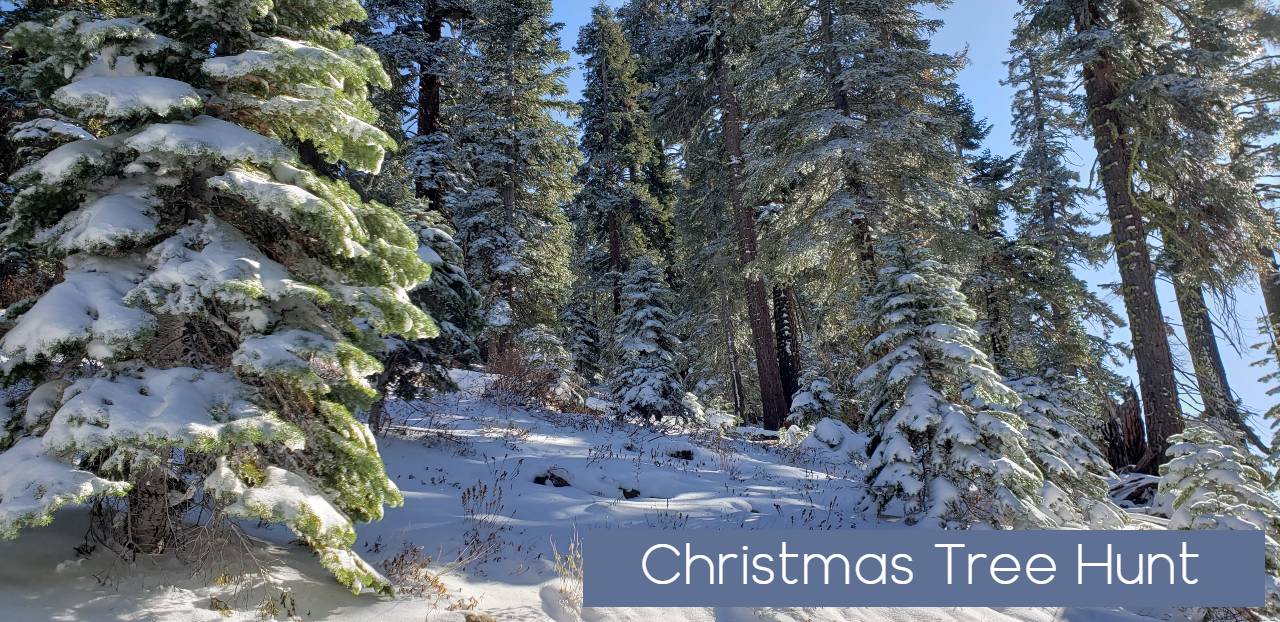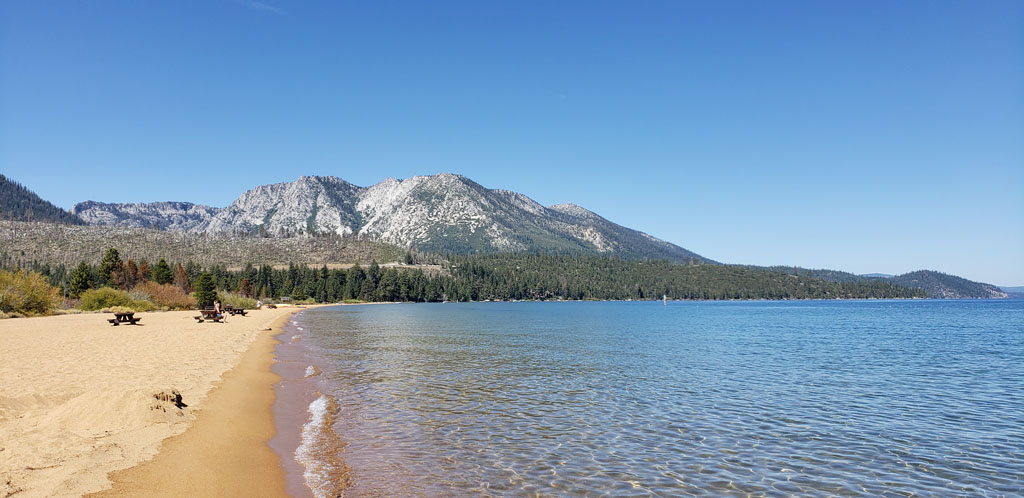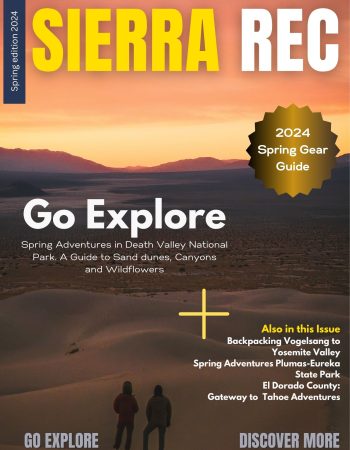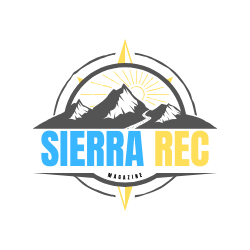Desolation volunteers train and prep for a Late and Wet season in back country
South Lake Tahoe – May 22, 2023 – This past Saturday over 50 volunteers of Desolation Wilderness gathered in South Lake Tahoe for an annual training and season overview with the authorities at Lake Tahoe Basin Management and Eldorado National forest. The all day training covers broad subjects regarding the history of desolation wilderness, unique and endanger features that are under protection in the wilderness and tips for becoming an authority of the resource.
Desolation Wilderness Volunteer program is nationally recognized for its successful structure and commitment to maintaining the features of wilderness in the Sierra. Desolation being one of the most visited wilderness areas in the nation is constantly embattled with the use of visitors and the constant battle of mother nature and wild fires. Volunteers bridge gaps in trail maintenance, Litter clean up and education for visitors on the elements of wilderness and the importance of leave no trace principles on each visit.
“Wilderness needs to be understood, so that it can be valued and then protected for future generations”
~ Don Lane Forest Service Historian
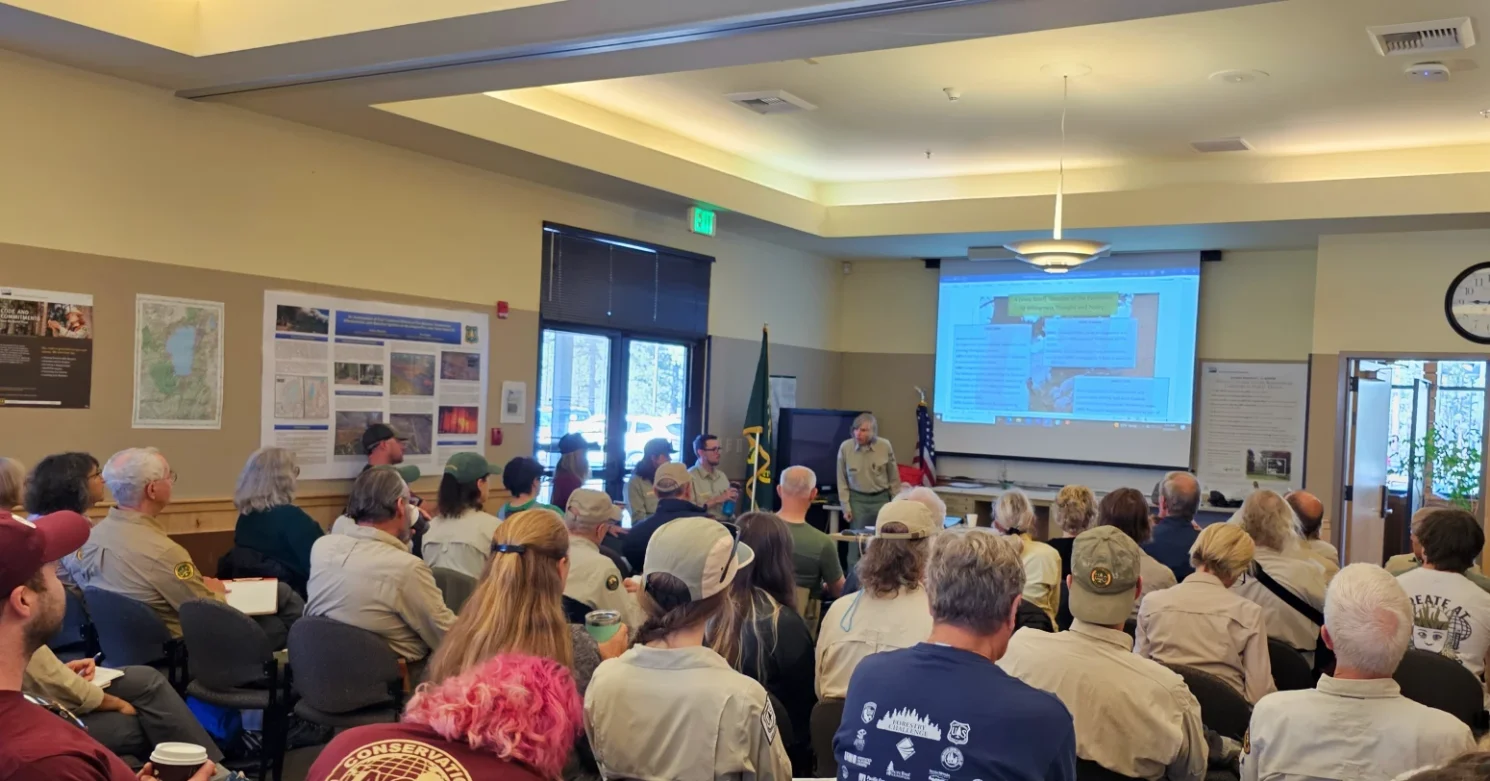
2023 Desolation Backpacking Season
The 2023 backcountry season will begin this next weekend for many visitors, snow and all. Desolation like much of the Sierra is covered in huge snow pack and the melting snow and high water is producing a delicate and dangerous start to the back country. Backpacking permits are required all year round in Desolation, but Memorial day week end is generally considered for many the start of back country backpacking season. Volunteers are only allowed at this time to work trailheads and up trails until they face heavy snow pack before they are instructed to turn back and keep safety at the for front of their efforts.
As a Volunteer for the past 5 years in Desolation Wilderness, we know that many people will not allow the snow to stop them in seeking the destinations and solitude they crave in Desolation. As we work the trailheads reminding visitors of the Bear Cannister requirements that went into effect last summer, reminder that fires have been illegal in Desolation for over 30 years and that we all should do our part in carrying out everything we take into wilderness. There are many thoughts of safety that will be discussed in 2023.
Snow Bridge and High Water Danger
As visitors make plans to head into Desolation Wilderness this summer snow pack dangers including avalanche and snow bridge collapse are risks that will need to be considered. Falling into a deep opening, hard surface or into deep/swift-running water can occur when a snow bridge collapses under a snow trekker. As weather warms and water begins to run under the snow, it is important that hikers hike together with a companion and beware of the surroundings. Hikers each spring report falling trough snow between rock or into streams with cold and swift water even when snow pack looks like it is several feet deep. Similar to a tree well in the depth of winter, snow bridges can be difficult to see while exploring, if you hear water near by caution should be taken.
Crossing High Cold water in Desolation is another consideration visitors must take into consideration. Trying to cross wet logs or creeks that are swollen by afternoon snow melt can be extremely dangerous. Hikers should consider turning around or hiking many mile out of the way to for a safer place to cross. Trails such as Susie Creek or Gilmore Lake for example have water crossings i the spring that will be swollen in 2023 and might present considerable danger,
Bear Canisters Required in Desolation Wilderness
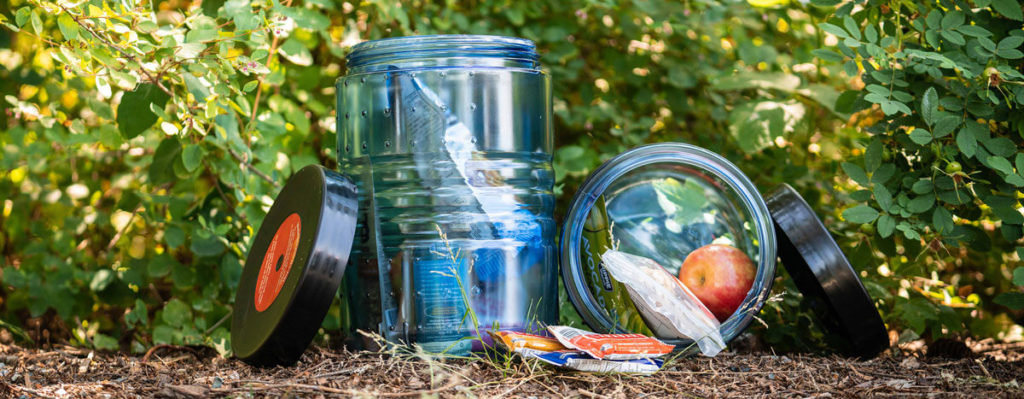
Bear canisters are required for overnight visitors in Desolation Wilderness. Overnight visitors must store all food, refuse and scented items in an approved hard-sided bear-proof container. This is an important step toward keeping Tahoe bears wild.
In recent years, bears have become more aggressive in their search for food, relying on human sources rather than natural sources. This causes increased interactions between humans and bears and the possibility of bears becoming habituated to the presence of humans. A person who fights back or gets between the bear and food is risking bodily injury or death. In cases where a bear is known to repeatedly threaten or intimidate visitors, or cause injury, the bear may be euthanized.
When a bear gets human food, it creates a mess with food packaging torn up and left scattered in campsites and along lakeshores. Sometimes bears eat the packaging along with the food. Rangers have observed food wrappers with bar codes in bear scat.
Backpackers at Lake Aloha, Gilmore Lake, and other popular camping areas in Desolation Wilderness have lost as many as 10 “bear hangs” a night to bears in recent years. Visitors are left with no food. To continue their backpacking trips, many of these groups must hike out of the wilderness to get more food.
Typical methods of food and trash storage are no longer effective as wildlife has grown accustomed to humans. Whistles, banging pots and pans, yelling, nothing is working. Bears have adapted to even the most experienced campers’ food hangs and brought them down.
One of the principles of Leave No Trace is to respect wildlife. Considerate campers observe wildlife from a distance, store food securely and keep garbage and food scraps away from animals. A camper would be wise to check his or her tent for food in pockets, candy wrappers, and similar items.
Backpackers can rent a bear canister at the Placerville Ranger Station when they get their permit. For more information on rental, call (530) 647-5415. They can also purchase a canister at a recreational outlet. Most bear canisters sold at retail recreational stores are highly bear-resistant.
Backpackers who are not in compliance with the forest order will be in violation of 36 C.F.R. § 261.58(cc) and are subject to be cited and fined.
Do day users need to carry a canister?
Typically, people not spending the night will not need to carry a canister. Think about whether you will be able to always stay within arms-reach of your food. If you plan to swim, or leave your pack behind while skiing or climbing, or some other situation, you must store your food in a canister.
Do I need a canister during the winter?
Yes, canisters are required year-round.

Why Desolation Volunteers Matter in the Future of Desolation
Volunteers in Desolation Wilderness cover so many important roles for visitors now and in the future of Desolation. As they take on the responsibility of being a voice for the resource. Many Volunteers find life long satisfaction in knowing they helped provide a safe and clean experience for another visitor each time they go into the wild to pick up trash, clean up illegal fire pits and restore areas back to natural states that have been overly used. Volunteers today can often be seen in the summer: cleaning up trails, fixing water bars, repairing campsites, directing visitors to proper camping locations with in their assigned zones, greeting visitors with their passionate knowledge of a place they love and helping those that find themselves lost or in danger to the best of their abilities.
This summer if you see a volunteer on trail charring a shovel or trash bag, cleaning up a campsite or simply heling a visitor with directions, ‘ Say hi and thank them. Knowing that the best thank you that you can provide is to take care of the Wilderness when you visit and that we are all volunteer wilderness protectors each time we enter.
Other Desolation Wilderness Facts:
- 1969 Desolation became a designated wilderness. It was known as Desolation Valley Primitive Area.
- Desolation Wilderness is managed jointly between the Lake Tahoe Basin Management Unit and the El Dorado National Forest.
- 15 trail heads into Desolation, 6 on Lake Tahoe Basin Management Unit side and 9 on the El Dorado National Forest side.
- Trailhead use in the Lake Tahoe Basin, from heaviest to least use: Eagle Falls, Glen Alpine, Echo Lakes, Tallac, Bayview and Meeks.
- Desolation Wilderness is 99 square miles, or 63,960 acres.
- Over 120,000 visitors anually.
- Heaviest used wilderness for its size.
- One of the most studied wilderness areas in the country.
- Access permits/Wilderness permits were started in 1997 just to enter the Desolation Wilderness for either day or overnight trips.
- In 1997 a fee was imposed for overnight camping. The day hike permit was free.
- Campfire ban in 1990.




